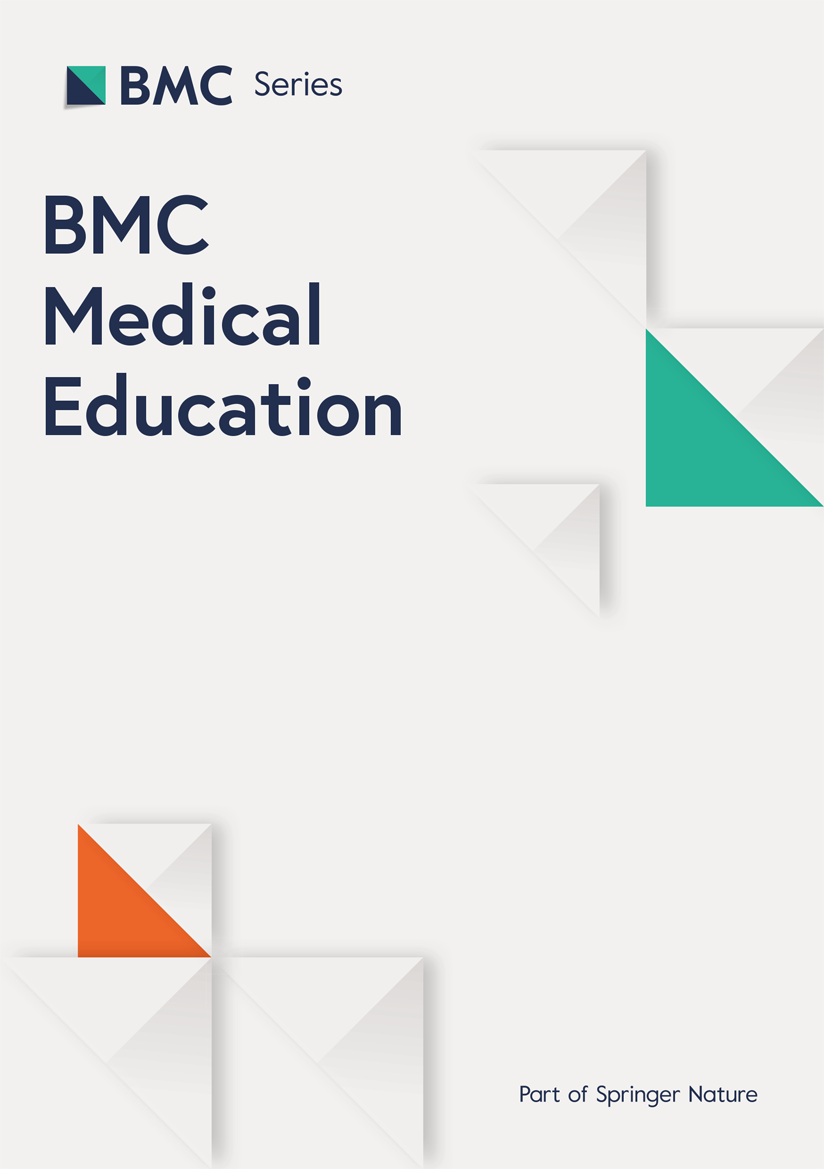Digital Learning in Healthcare Service Delivery
Published in Healthcare & Nursing and Education
QR codes have been used in various industries for many years, but their capabilities in education and learning have received less attention. As a technology that can create instant access to vast information, QR codes have significant potential for use in busy clinical environments. This rapid review could potentially prevent many errors by the healthcare team. Understanding the importance of using such a simple and low-cost technology, along with the high levels of stakeholder acceptance, can lead to a fundamental change in learning methods.
Our team's effort has been focused on assessing nurses' acceptance of using QR codes to learn how to operate medical devices, which you can read about. I eagerly await your feedback.
Follow the Topic
-
BMC Medical Education

This is an open access journal publishing original peer-reviewed research articles in relation to the education and training of healthcare professionals. It welcomes studies on students and professionals across all levels of education; education delivery aspects; and other education-related topics.
Related Collections
With Collections, you can get published faster and increase your visibility.
The role of medical humanities in medical education
BMC Medical Education is calling for papers to a Collection entitled The role of medical humanities in medical education.
The integration of medical humanities into medical education has gained recognition as a vital component in training empathetic and competent healthcare professionals. Medical humanities encompass a range of disciplines, including literature, philosophy, history, and the arts, which can provide critical insights into the human experience of illness, patient care, and the ethical dimensions of medicine. By fostering a deeper understanding of the social and emotional contexts of health, medical humanities encourage a more holistic approach to medical training and practice.
The inclusion of medical humanities in education has shown promising results in enhancing students’ communication skills, empathy, and ethical reasoning. Recent advancements have highlighted the value of narrative medicine, reflective writing, and the study of art in promoting self-awareness and critical thinking among medical students. As healthcare increasingly emphasizes patient-centered care, the role of medical humanities will continue to expand, offering innovative ways to bridge the gap between scientific knowledge and humanistic understanding.
We invite researchers to submit their work to this Collection, which aims to showcase research that explores the various dimensions of medical humanities in medical education, including but not limited to the topics listed below:
•Narrative medicine and patient storytelling
•The role of art in medical education
•Ethical reasoning through humanities
•Integrating literature into clinical practice
This Collection supports and amplifies research related to SDG 3: Good Health and Well-being.
All manuscripts submitted to this journal, including those submitted to collections and special issues, are assessed in line with our editorial policies and the journal’s peer review process. Reviewers and editors are required to declare competing interests and can be excluded from the peer review process if a competing interest exists.
Publishing Model: Open Access
Deadline: Apr 24, 2026
Transnational medical education programs
BMC Medical Education is calling for submissions to our Collection on Transnational medical education programs. As medical education expands beyond national boundaries, new opportunities and challenges are emerging in how curricula are delivered, quality is assured, and learners are supported across diverse cultural and institutional contexts. These cross-border educational partnerships are reshaping the way we define standards, prepare future health professionals, and foster global health equity.
This Collection invites research that critically examines the structure, outcomes, and implications of educational initiatives that operate across borders. Whether through institutional partnerships, dual-degree programs, offshore campuses, or digital learning platforms serving international student populations, transnational initiatives demand thoughtful attention to pedagogical alignment, accreditation, faculty development, and learner experience. We welcome insights that address the complexity of delivering medical education in settings where geographic, regulatory, and cultural contexts differ.
We encourage submissions on topics such as:
• Curriculum design and adaptation across cultural and regulatory contexts
• Accreditation and quality assurance in cross-border medical education
• Faculty development and support in international teaching environments
• Student experiences, identity formation, and transitions between institutions
• Governance models and institutional partnerships in global medical education
• Ethical considerations and power dynamics in transnational collaborations
• Role of digital platforms and technology-enhanced education in delivering cross-border education
This Collection aims to showcase diverse voices and evidence-based approaches that inform the development and sustainability of cross-national medical education programs. By fostering open dialogue and rigorous inquiry, we seek to support inclusive, high-quality education that prepares graduates to meet health needs across a global landscape.
All manuscripts submitted to this journal, including those submitted to collections and special issues, are assessed in line with our editorial policies and the journal’s peer review process. Reviewers and editors are required to declare competing interests and can be excluded from the peer review process if a competing interest exists.
This Collection supports and amplifies research related to SDG 3: Good Health and Well-being, SDG 4: Quality Education, and SDG 17: Partnerships for the Goals.
Publishing Model: Open Access
Deadline: Jun 23, 2026

Please sign in or register for FREE
If you are a registered user on Research Communities by Springer Nature, please sign in